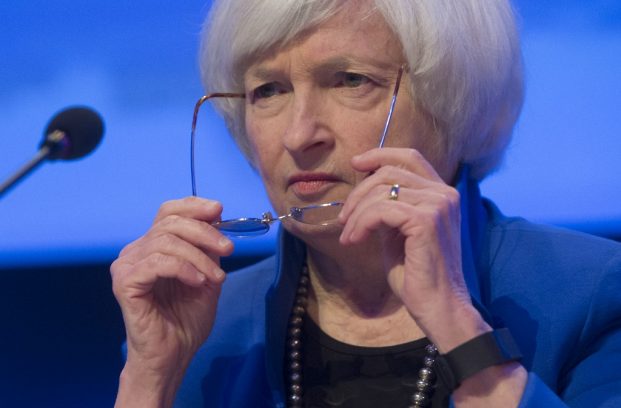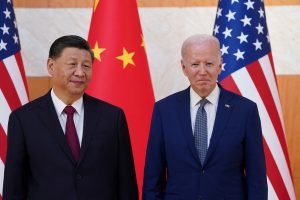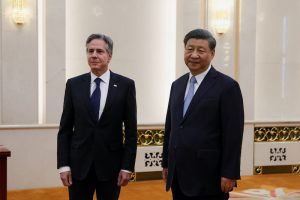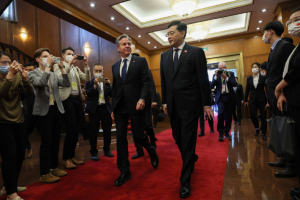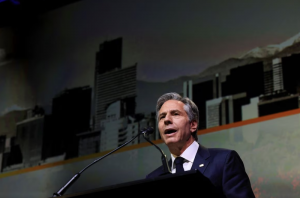(ATF) Biden’s two most important cabinet appointments have now been decided, with his long-time foreign policy adviser Antony Blinken due to be nominated as Secretary of State; and Janet Yellen to be tapped as the next Treasury Secretary.
Both are centrist choices of individuals with experience in dealing with Chinese issues.
Yellen was the first woman to chair the US Federal Reserve, serving one term from 2014 before President Trump replaced her with Jerome Powell in 2018.
Before she won the top job at the US central bank, Yellen was President of the San Francisco Federal Reserve, which traditionally takes a lead in liaising with Asia, including fact-finding trips to the region.
She pushed for greater Chinese exchange rate flexibility after a visit to China and Hong Kong in late 2009, in the wake of the global financial crisis, for example.
“In China’s case, increased exchange rate flexibility could mitigate growing inflationary concerns, and also act toward easing global imbalances and encouraging the development of the household sector, a shift the Chinese government now officially says it wants. The crisis has vividly demonstrated to the Chinese one of the downsides of pursuing an export-oriented growth strategy, namely increased vulnerability to adverse foreign shocks,” Yellen said in a paper she published in February 2010.
In more recent comments on US/China relations, Yellen has criticised Trump’s obsession with the trade deficit with China – along with his grasp of basic economics – while stressing that there are issues to be tackled, such as treatment of intellectual property.
“With respect to tariffs, I think President Trump and some of his advisers are very focused about the magnitude of bilateral trade deficits – and of course, we have a huge bilateral trade deficit with China – and take that as a symptom of relationships being unfair and seek to really try to modify that. I regarded that as not the proper focus,” Yellen said at a panel discussion in February, soon after a truce in the tariff trade war.
“But let me be clear, I do think the United States has real issues in terms of its trade relations with China, and many valid concerns that are certainly on the table for discussion,” she added.
Blinken to be Secretary of State
Antony Blinken, Biden’s choice for Secretary of State, will take the lead in key foreign policy relations with China, replacing the combative Mike Pompeo, who has been keen to aid moves by the Trump administration to introduce extra curbs on Chinese companies in its final two months in office.
Blinken is an experienced diplomat who served as deputy secretary of state under Obama, as well as a long-time foreign policy adviser to Biden.
Blinken, like many Democrats, has been keen to counter Trump’s accusations that a Biden administration would be weaker in term of policy towards China.
“I’d suggest that by denigrating our alliances, abdicating our leadership in international organisations and abandoning our values, POTUS (Trump) has strengthened China’s position and weakened our own,” Blinken said in a tweet in May.
Markets buoyed by nomination of Yellen
The nomination of Yellen was welcomed by Wall Street, where stocks rose 1.1% on Monday on news that Yellen would be the next Treasury Secretary and more positive announcements about coronavirus vaccines.
Gregori Volokhine, president of Meeschaert Capital Markets, called Yellen a “friend of the markets” for supporting further spending that would boost equities, and noted that her confirmation would mark a return of technocrats to the executive branch.
“After four years of political appointments, we have appointments of professionals, not only political professionals but also professionals in their professions,” he told AFP.
At the Fed, Yellen was seen as a “dove” inclined towards low interest rates to support employment. She will succeed Steven Mnuchin, and will have to break the months-long deadlock in Congress over passing a new stimulus spending bill if lawmakers don’t act before Biden’s inauguration in late January.
‘Essential’ spending
Congress has been deadlocked on passing a second stimulus package, with Democrats supporting another $2.2 trillion measure but Republicans insisting on a series of smaller bills.
Currently a distinguished fellow at the Brookings Institution in Washington, Yellen has signalled support for more spending.
“Fiscal policy has a very important role to play now,” she said in an appearance this month. “I believe it’s essential.”
With reporting by AFP




